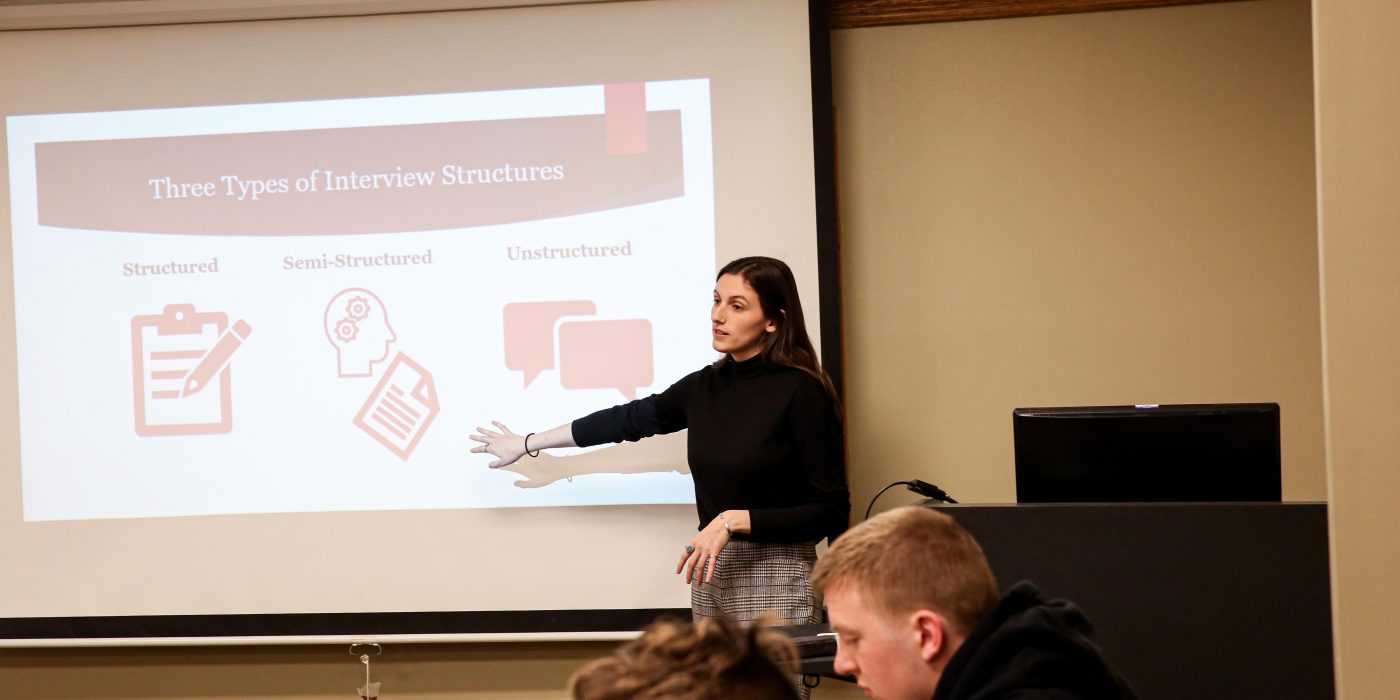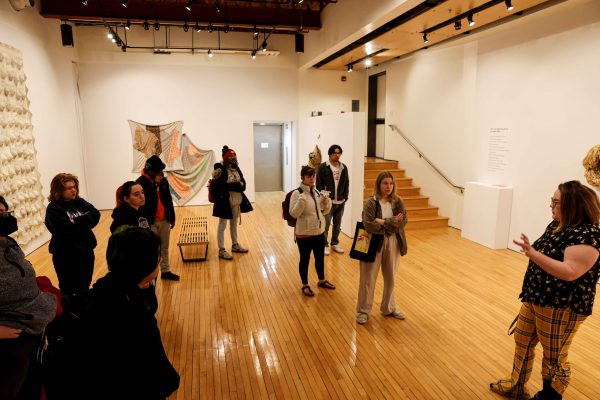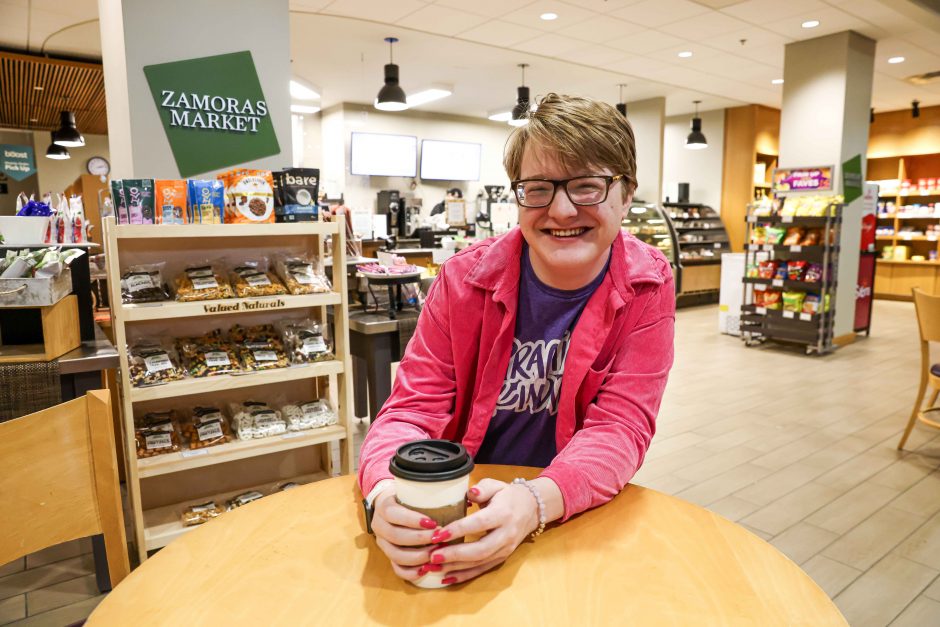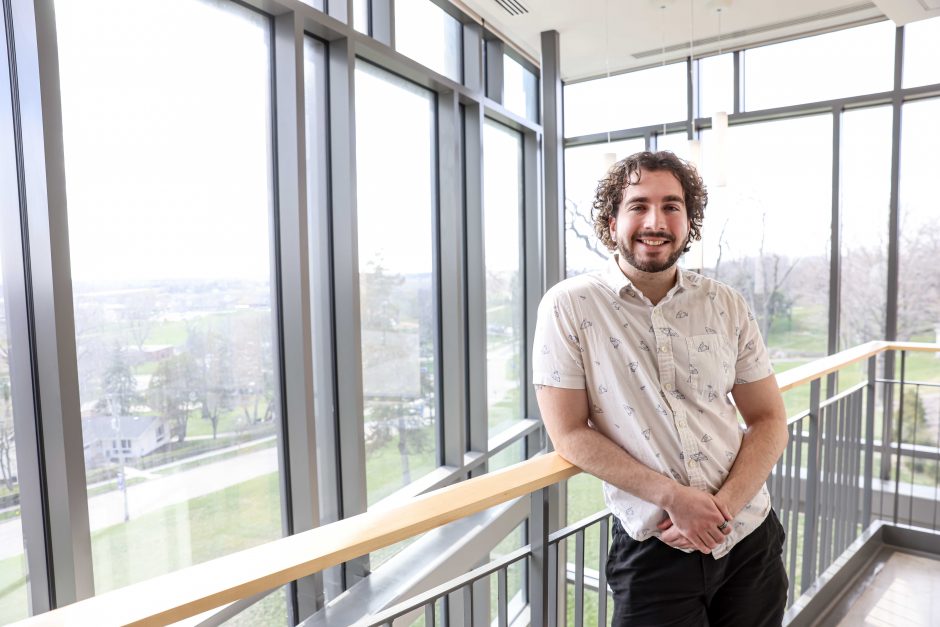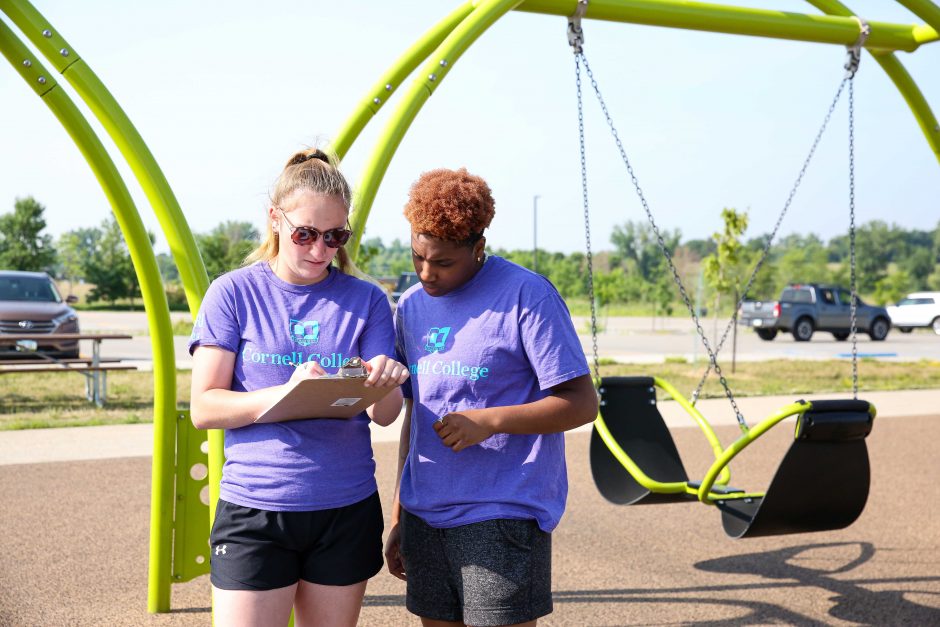Two alums return to teach
From learning on the block plan to teaching on the block plan–a couple of familiar faces were back on campus to share their knowledge with today’s students.
Jillian Schulte ’19 and Rachael Maxon ’12 returned to teach classes during Block 7.
Schulte, who is currently working on her Ph.D. in medical anthropology at Case Western Reserve University in Cleveland, taught Introduction to Cultural Anthropology. Maxon, who is also finishing a Ph.D. in art history at the University of Iowa, taught Digital Art History and Visual Culture.
Both have fond memories of the Hilltop and say they are grateful to work with today’s faculty, staff, and students.
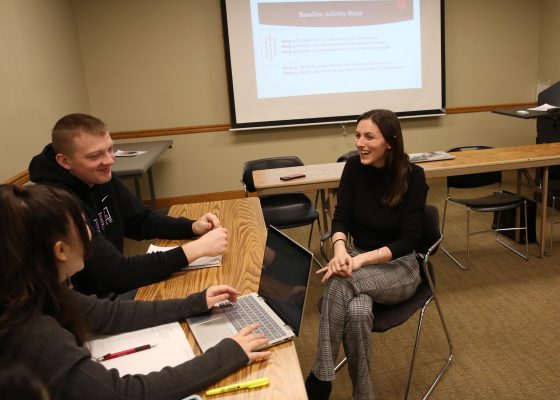
Jillian Schulte
While this is Schulte’s first time teaching a course at Cornell, she has not been a stranger to campus since her 2019 graduation. Previously, she has been invited by Professor of Sociology Tori Barnes-Brus ’97 to share her graduate school experience with Cornell seniors.
While at Cornell she was a double major in ethnic studies and medical anthropology (an individualized major), which included a mix of anthropology courses focused on health and the body.
One thing she says is for sure–the block plan set her up for success.
“When you go off to graduate school, and you come into contact with other students and colleagues who have not had block plan experience, you really do see a difference in what people perceive to be possible within a short period of time. There is a lot of value in being able to really immerse yourself in a project and get it done,” she said.
It didn’t take long to adjust once she was back on the Hilltop. She found it easy to feel at home in her classroom in the Thomas Commons.
“I’ve definitely been molded into the block plan way of thinking and acting and teaching and learning. I jumped right back in. I also have taught an accelerated class at Case Western Reserve University, so I have experience formatting syllabi to fit a fast pace.”
Schulte says she is someone who gets attached to places, so being back in Mount Vernon has brought back a lot of fond memories and nostalgia. She’s spent time walking around campus, catching up with community members, and getting her fill of coffee at Fuel. This All-American volleyball player is also enjoying seeing the renovations of the SAW and visiting with Head Volleyball Coach Jeff Meeker.
“A lot of people have been very supportive. People have also recognized me, which has been great and surprising in some cases. I’ve been able to strike up good conversations with faculty and staff members.”
She even remembers taking the class she taught during Block 7. This 2019 grad says she focused on making the course engaging and helping students recognize the diversity of cultural frameworks that exist in the world, while simultaneously reflecting on their own cultural viewpoints.
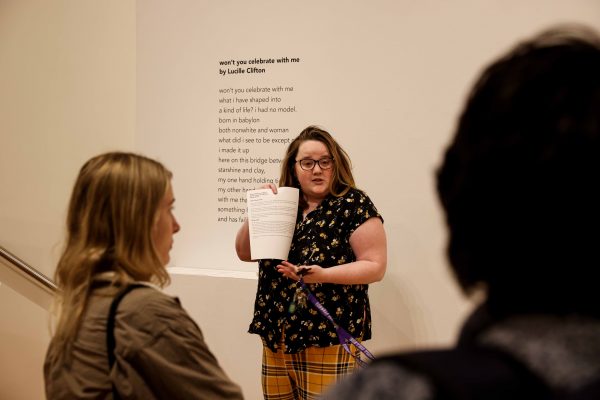
Rachael Maxon
Down the hill in McWethy Hall, Maxon taught in the new Digital Arts Lab during Block 7. The Digital Art History and Visual Culture course is the second course they’ve taught this year. In Block 3, they taught African Art.
“Having someone as an instructor who has been a student here who has already learned on this unique system helps current students because it informs how and what I need to teach,” Maxon said. “That experience and focused lesson plan made it easier for students to learn, absorb, and apply information. I think it was also a good networking opportunity and a great chance for students to see what opportunities Cornell offers to its graduates.”
Looking back, Maxon said they enjoyed One Course At A Time while they were here and still enjoy it today. They say it’s suited for those who enjoy deep work that you would not get at traditional semester-style universities.
“It provides a quality of education that I believe is unmatched when compared to traditional schools whose focus is to get as much in as possible rather than focus on one particular subject. Students do better because they are less distracted by the myriad of subjects and deadlines from multiple courses, and they don’t have the stress of working on multiple courses at once.”
One thing they quickly noticed upon their return was that the mentorship didn’t end even though they had graduated. They are working closely with their former advisor, Professor of Art History Chris Penn-Goetsch, and many other art faculty members.
“I’ve really enjoyed being back on campus in my new role, and I appreciate the opportunity to come back to a place I really loved. I am also really thankful for all the help and support I’ve been given here at the college, not just from my mentor Chris Penn-Goetsch, but everyone I’ve interacted with since I’ve been back.”
They say it was also surprising to see how much campus has changed since 2012, especially the Thomas Commons and the SAW. They’re also impressed by the new Digital Arts Lab in McWethy Hall.
“I am also really astonished at how supportive Cornell has become for various learning disabilities and mental health issues. When I was attending, it was very secretive and you had to jump through so many hoops to even get basic accommodations for classes. Now it seems much easier to get the help and support you need to do well. I’m so glad students are getting the help they need.”

